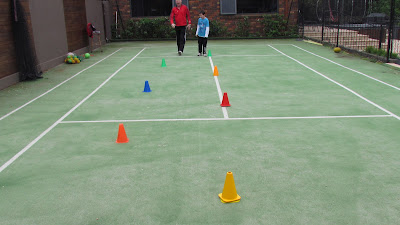 |
| Eye on the ring. Max at Heartwell in 1999. |
One of the most endearing and memorable children to have come Through Our Door is Max.
In late February 1998, Max then 17 strode into our office accompanied by his mum and dad. From the outset we knew Max was a totally unique and special character and to this day we have very fond memories of him and his larger than life personality.
Diagnosed at 8 with a brain tumour (Cerebellar Astrocytoma), Max underwent surgery and in his own words ‘this changed everything’. This left Max with poor coordination, facial muscle weakness (Bell’s Palsy) and having to relearn how to walk, talk, sit up and feed himself. Max became the victim of constant bullying and teasing because he looked and moved differently to his peers. He became a very angry young boy. To Max's credit by the time we met him he had overcome this and we never saw that side of him. He was consistently positive and encouraging of all around him.
When his tumour returned seven years later requiring further surgery, Max was referred to us to regain his fitness and skills and self confidence.
In the Heartwell environment, Max flourished. He accepted every challenge and although starting from a very poor endurance base, he quickly progressed and it was marvellous to witness his work ethic and desire to improve.
Everyone loved Max and his confidence and willingness to speak about what he had been through became inspirational. Max accompanied me on many occasions to speak to groups of business people and students about himself and Heartwell and his personality, his self deprecation and his presence had people riveted.
Max spent three years with us at Heartwell. He went on to finish secondary school and graduate from University. The last we heard from Max was a couple of years ago when he rang to say he was getting married the next day. He was so excited and happy and we were thrilled for him. Max has an amazing insight and a quirky way of looking at the world and he often amazed us with his thoughts and philosophies.
Hard to believe that Max would be in his early 30’s now and wherever he is and what ever he is doing, we are sure that he is as popular and as well loved as he was all those years ago when he came Through Our Door.



















